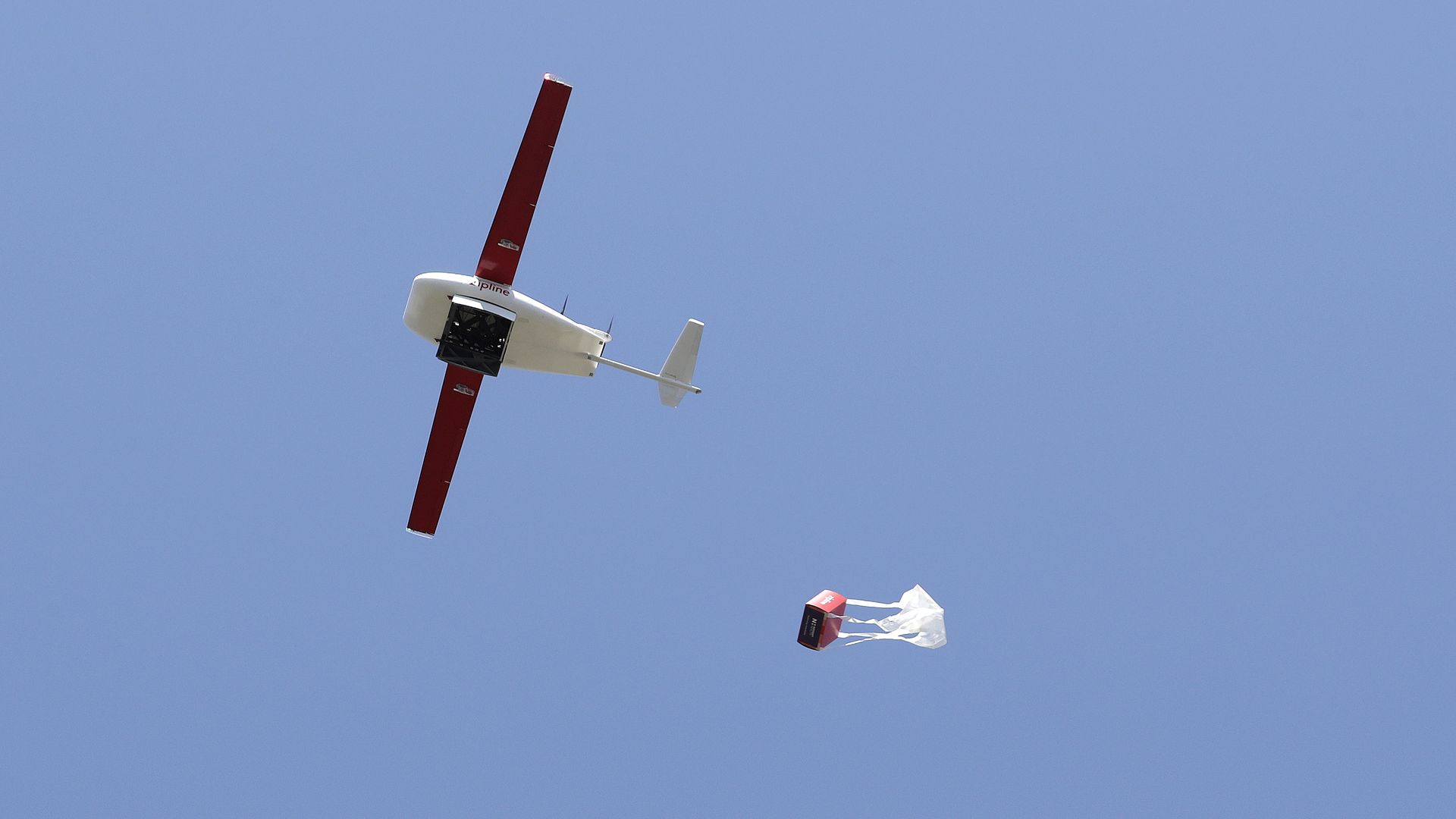Zipline drones deliver masks to hospitals; vaccines could be next
Add Axios as your preferred source to
see more of our stories on Google.

Zipline's drone drops medical supplies via parachute. Image courtesy of Zipline.
Zipline, a California drone company, has made its U.S. debut by delivering medical supplies to hospitals in North Carolina under a pilot program honed in Africa.
Why it matters: The effort, made possible by a waiver from the Federal Aviation Administration to Novant Health, is the nation's longest-range drone delivery operation and could demonstrate how drones could be used in future pandemics, Zipline officials said.
The big picture: The pandemic has caused a surge of interest in contactless delivery, creating new opportunities for robots, driverless vehicles and unmanned drones.
Driving the news: Zipline and Novant Health, a large hospital system in North Carolina, had planned to begin service in October under a pilot program with the North Carolina Department of Transportation but accelerated their plans when the coronavirus pandemic hit.
- Novant wanted to be prepared in case a surge of COVID-19 cases began straining supply lines for protective equipment, Angela Yochem, executive vice president and chief digital and technology officer, told Bloomberg.
- “If we relied on the traditional distribution, you're looking at a scenario in which you're stockpiling at the endpoint,” said Yochem, “With drone delivery, you can have an ongoing delivery of PPE or medicines or other critical supplies on demand.”
Details: Zipline set up a distribution hub on the grounds of NASCAR's Stewart-Haas Racing, located next to Novant's logistics center in Kannapolis, N.C.
- From there, its battery-powered drones are launched like slingshots into the air, carrying cargo of up to four pounds over suburban Charlotte.
- When they reach Novant Health’s Huntersville Medical Center 15 miles away, they drop the box of masks and other protective gear by parachute in a designated spot next to the parking lot.
- When the drones return to the hub, they are snagged by a wire, like a plane on an aircraft carrier.
- For now, Zipline's hub has 10 drones, each capable of running many trips per day up to 100 miles round-trip. At full capacity, it can handle 30 drones.
- The hub is modeled after operations Zipline has been running in Rwanda and Ghana for several years.
What they're saying: "We’re likely in for a long-term fight against COVID-19," said Zipline CEO Keller Rinaudo. "Using contactless drone logistics will be an important tool in that effort. The work underway here in North Carolina will provide the rest of the country with a blueprint for how to build the most resilient and responsive health care system possible.”
- The company says it hopes to deliver COVID-19 treatments and, eventually, vaccines, to coronavirus hot spots.
What to watch: The FAA waiver is good through October, or until all COVID-19 related travel restrictions have been lifted.
- Zipline and Novant continue to work with the Federal Aviation Administration toward full certification for package delivery by drone.
